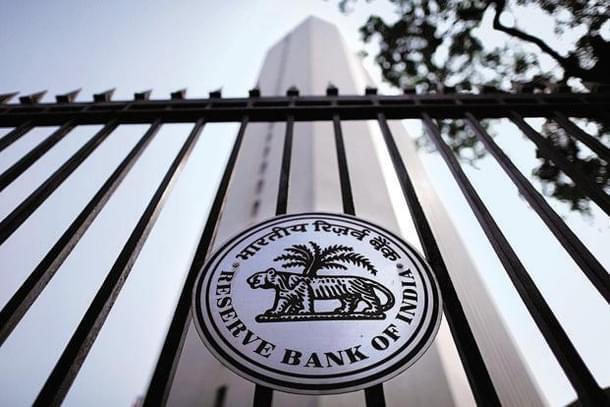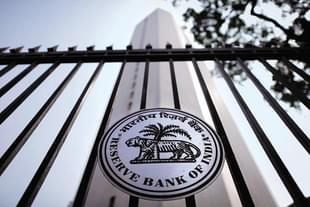Economy
Bank NPAs: Handing Over This Hot Potato To the RBI Is A Bad, Bad Idea
R Jagannathan
May 05, 2017, 11:18 AM | Updated 11:17 AM IST
Save & read from anywhere!
Bookmark stories for easy access on any device or the Swarajya app.


An ordinance to give more powers to the Reserve Bank of India (RBI) to force banks to settle bad loans is now pending with the President for approval. It is likely to become law soon. The proposal, which will involve amending section 35 of the Banking Regulation Act, will enable the central bank to create a timeline for resolution of bad loans (six to nine months, says Mint), and the priority will be to deal with the top 50 big defaulters who account for the bulk of the bad loans.
It’s a bad idea to involve the RBI, which is the regulator and guardian of the banking system, in loan resolution issues. This is nothing but abdication of duty by the true owners of banks – and in the case of 70 per cent of the banking system, it is the government. Whom to extend loans and whose loans to write off is an executive or board decision, not that of the regulator. At best, the regulator can offer forbearance on prudential norms to lend a helping hand. The actual business of running the commercial aspects of a bank cannot be that of the regulator.
It is more than likely that the government decided to hand over this hot potato to the central bank to deflect any blame for large loan writeoffs, which will surely become a political issue. With calls for waiving farm loans growing louder, any loan writeoff involving big business has obvious political implications.
The problem relates to the period before Narendra Modi came to power, with many big loans being sanctioned for unviable infrastructure projects under political pressure. Even though settling bad loans and writing off some of the unrecoverable ones makes sound commercial sense, politically it will never play well.
But bringing the RBI in the direct line of political fire is self-defeating, for it will compromise the central bank’s own perceived autonomy. In any case, what the RBI does or does not do will be seen as the government’s decision anyway, as was the case with demonetisation and its political fallout.
The job of cleaning up bad loans, if at all it needed to be given to someone, should have gone to the Bank Boards Bureau, whose head Vinod Rai is now busy administering the Board of Control for Cricket in India, when this is the burning problem.
The problem of bad loans – now swelling to nearly Rs 9,64,000 crore - can be solved only by bank chiefs, and nobody else. In an interview to The Economic Times some months ago, Vinod Rai castigated banks for not resolving bad loans despite being given a lot of leeway to do so, both by the Bank Boards Bureau and the RBI. He said: “We are not making much progress and I don’t think we have anybody else to blame but the banks themselves... The critical issue…(is) how many bad loans have you resolved? I don’t think at any point of time before this, the government or RBI had made it so simple for them to settle. But the point is RBI is not going to lay out the entire red carpet and then say you settle.”
The ordinance to bring RBI into the picture is probably intended to lend regulatory spine when bank chairmen and their boards seem to lack the same.
But is this the solution? Logically, it is banks which are the best judges of who can pay up and which sector is worthy of larger restructuring or writeoffs. Only they know what kind of hair-cut is right for them to take on loans that went sour. So how is the RBI going to be any better in judging these issues? It is effectively a way of shifting responsibility from boards to the central bank.
The larger question is why are banks so reluctant to settle?
Two reasons explain this problem. One is that no bank chief or board wants to have the CBI running after them asking why they gave so-and-so promoter a sweetheart deal. The other reason is that most bank brass have only one or two years of tenure at the top; if you are facing retirement, the last thing you want to do in your sunset years is to stir things up so that court cases get filed against you. Hardly the most enticing of retirement options for most people.
Is there a way out?
Yes, the job now assigned to the RBI should really be statutorily given to the Bank Boards Bureau. The bad loans in the private sector can be handled by their more responsible boards, since no vigilance commission will be sent after them.
And, secondly, in all problem banks, the tenures of retiring and future CEOs should be extended for up to five years and the brief given to them must be simple: their performance will be judged based on how fast they settle bad loans. If a CEO knows that he cannot postpone the resolution of bad loans indefinitely, and that the problem is his to handle, he will probably do something about it. Asking a CEO whose retirement is due a few months from now to take risks is hardly the way to go.
Jagannathan is former Editorial Director, Swarajya. He tweets at @TheJaggi.




